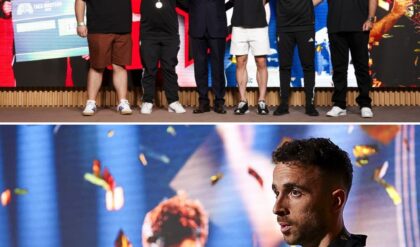The Saudi Pro League is poised to embark on an ambitious venture this summer, aiming to further elevate its status and competitiveness through a fresh wave of high-profile transfers. Premier League stars, including Liverpool’s Mohamed Salah and Alisson, have become prime targets for Saudi clubs as they seek to enhance their squads and bolster the league’s global standing.
In the 2023 summer transfer window, only the Premier League outspent the Saudi Pro League, with an expenditure of approximately £750 million attracting nearly 100 foreign players to the league. While not every signing has proven successful, sources within Saudi Arabia express growing confidence in their ability to continue attracting top European talent.
Among the sought-after players is Liverpool talisman Mohamed Salah, who previously rejected a £150 million bid from Al-Ittihad. Salah’s exceptional abilities make him an “obvious target” for Saudi clubs. Additionally, Brazilian goalkeeper Alisson, whose contract at Anfield runs until 2027, has piqued the interest of several Saudi teams. Furthermore, Premier League stars like Manchester United’s Casemiro and Raphaël Varane, who recently announced his departure from the club, have been linked with potential moves to the Saudi Pro League.
While some players have expressed initial discontentment upon joining the Pro League, officials in Saudi Arabia are hopeful that the opening of exclusive resorts in the Red Sea will help alleviate concerns and attract more players to the region. Salah, in particular, is believed to be receptive to a move, given his frequent visits to nearby Hurghada in his native Egypt during the summer.
To enhance competition, the Pro League has expanded the quota for foreign players from eight to ten for the upcoming season, with a stipulation that two of them must be under the age of 21. This necessitates clubs making space for new signings by transferring or releasing existing players. League officials are determined to strengthen the overall quality of the competition by supporting smaller clubs in improving their squads.
Last year, the Public Investment Fund (PIF), which already holds a majority stake in Newcastle United, took control of four Saudi clubs—Al-Ittihad, Al-Ahli, Al-Nassr, and Al-Hilal—as part of an ambitious government-led initiative to elevate the domestic league into the top ten worldwide. Additionally, government-affiliated entities, including the state-owned oil company Aramco, have made investments in various Pro League clubs.
Acknowledging the need for a more balanced competition, league officials recognize the importance of investing in smaller clubs. The average attendances for six clubs last season were below 4,000, prompting efforts to attract investment through a change in Saudi Arabia’s Code of Law Practice, which now requires foreign companies to register their businesses within the country. Furthermore, local companies are being encouraged to contribute to the growth and development of the league.





